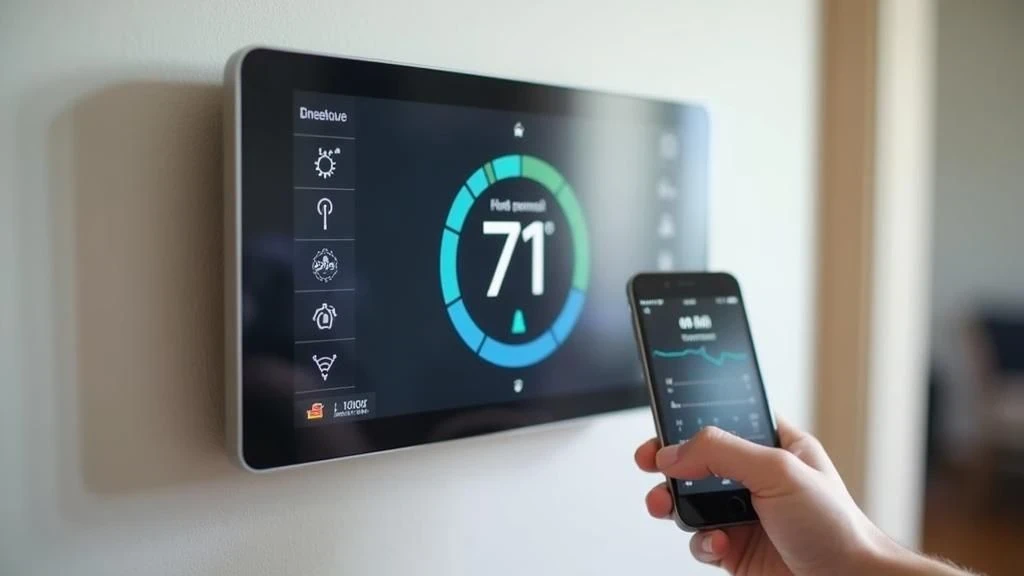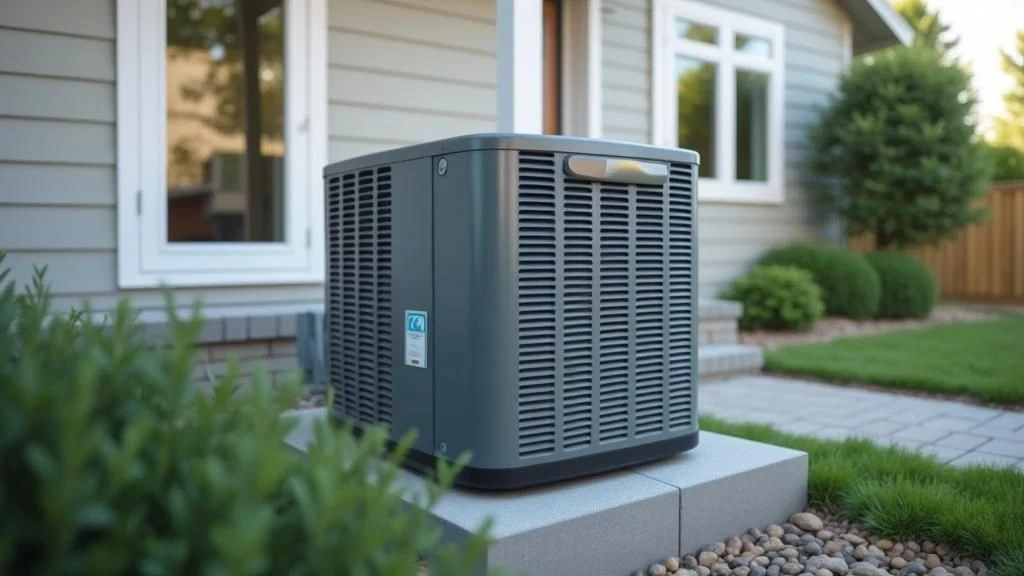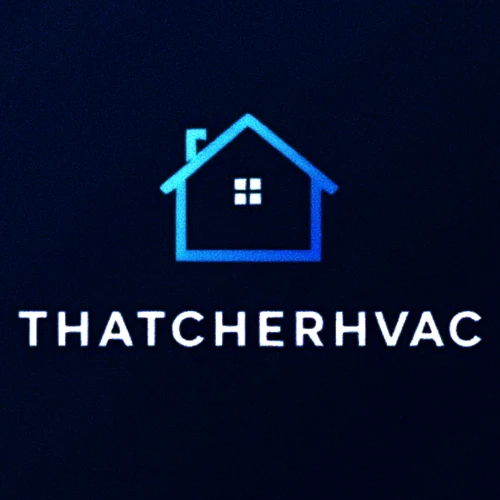10 Tips for Improving HVAC System Efficiency
Written By Thatcher News
Improving HVAC system efficiency is crucial for reducing energy costs and enhancing comfort. An efficient system not only saves money but also contributes to a greener environment.
With rising energy prices, optimizing your HVAC system is more important than ever. Simple changes can lead to significant energy savings.
Whether you’re a homeowner or a facility manager, understanding HVAC efficiency can make a big difference.
This guide offers practical tips to boost your system’s performance. From regular maintenance to smart upgrades, these strategies can help you achieve optimal efficiency.
Let’s explore how you can enhance your HVAC system’s efficiency and enjoy the benefits of energy savings.

Why HVAC System Efficiency Matters
Efficient HVAC systems are vital for reducing energy bills and environmental impact. They use less energy, providing the same comfort with reduced expenses.
Beyond cost savings, efficient systems ensure more consistent temperatures and air quality. This results in increased comfort for building occupants.
Key reasons why HVAC system efficiency is essential include:
- Energy savings: Lower energy usage translates into financial savings.
- Environmental benefits: Reduced energy consumption means a smaller carbon footprint.
- Improved comfort: Consistent heating and cooling enhances overall comfort.
Ensuring efficiency in your HVAC system not only saves money but also supports sustainability efforts. It’s a win-win for both your wallet and the planet.
1. Schedule Regular Maintenance
Routine maintenance is crucial for optimal HVAC system performance. Regular checks prevent unexpected breakdowns and maintain efficiency levels. A professional inspection can identify issues before they escalate into costly repairs.
Key tasks during maintenance include:
- Checking and replacing air filters
- Inspecting and cleaning coils
- Examining refrigerant levels
Regular inspections ensure your system works at peak efficiency. Not only does this enhance energy savings, but it also extends the life of your HVAC system. By investing a little time in maintenance, you avoid major issues and ensure comfort all year round.
2. Replace or Clean Air Filters Frequently
Air filters play a vital role in maintaining HVAC efficiency. Dirty filters block airflow and strain the system, reducing effectiveness. Regularly replacing or cleaning these filters enhances air quality and keeps the system running smoothly.
Consider these tips when managing air filters:
- Change filters every 1-3 months
- Use high-quality filters for better performance
- Monitor filters more often during peak usage seasons
By managing your air filters diligently, you can significantly improve your HVAC system’s efficiency and longevity. This small effort translates into noticeable energy savings and better air quality in your home.
3. Upgrade to a Programmable or Smart Thermostat
Switching to a programmable or smart thermostat can optimize temperature settings for maximum efficiency. These advanced thermostats learn your schedule and adjust temperatures automatically, minimizing energy waste.
Advantages of using a smart thermostat include:
- Scheduled temperature settings tailored to your routine
- Remote access and control via smartphone
- Energy usage reports for better monitoring
With these benefits, you can achieve significant HVAC energy savings and improved comfort. Smart thermostats make it easy to enhance efficiency without sacrificing convenience. Upgrading is a simple step toward a more energy-efficient HVAC system.
4. Seal and Insulate Ductwork
Leaky ducts can lead to significant energy loss, reducing HVAC system efficiency. Properly sealing and insulating ductwork helps maintain desired temperatures and reduces wasted energy.
Key benefits of sealing and insulating ductwork include:
- Improved system efficiency
- Enhanced indoor air quality
- Lower energy bills
By addressing ductwork issues, you ensure that air is distributed efficiently throughout your space. This simple fix can lead to long-term energy savings and improved comfort. Invest in duct maintenance to maximize your HVAC system’s efficiency.

5. Ensure Proper System Sizing
Choosing the right size for your HVAC system is crucial. An oversized or undersized unit can lead to inefficiencies and higher energy costs.
Improper sizing can cause your system to work harder than necessary. This results in excessive wear, increased energy use, and potential discomfort. Consult with a professional to ensure your HVAC system is correctly sized for your home or facility. Proper sizing improves efficiency and enhances comfort.
6. Use Zoning Systems for Targeted Comfort
Zoning systems allow you to regulate temperatures independently throughout different areas. This efficient approach saves energy and enhances comfort. Each zone operates based on occupancy and usage patterns, reducing unnecessary heating or cooling.
Implementing zoning systems offers several benefits:
- Increases energy savings.
- Tailors comfort to individual preferences.
- Reduces strain on your HVAC system.
By investing in zoning technology, you optimize your HVAC system efficiency and enjoy personalized comfort throughout your home.
7. Keep Outdoor Units Clean and Clear
Outdoor HVAC units require adequate airflow for efficient operation. Clear away leaves, dirt, and debris regularly to maintain performance. Ensure at least two feet of clear space surrounding your unit.
Regular maintenance tasks include:
- Trimming back plants and shrubs.
- Cleaning dirt from unit fins.
- Checking for obstructions like grass clippings.
Keeping outdoor units clean helps ensure your HVAC system runs smoothly and efficiently.
8. Improve Home Insulation and Air Sealing
Enhancing your home’s insulation is key to boosting HVAC system efficiency. Properly insulating your home reduces the burden on your system. Sealing gaps and cracks can prevent energy loss significantly.
Consider the following actions:
- Add insulation to attics and walls.
- Seal leaks around windows and doors.
- Use weatherstripping and caulking.
Improving insulation and air sealing creates a more consistent indoor climate, resulting in increased energy savings and comfort.

9. Consider Upgrading to a High Efficiency HVAC System
Switching to a high efficiency HVAC system can offer substantial energy savings. Though the initial investment might be steep, long-term benefits often outweigh costs. High efficiency systems use advanced technology to optimize energy use and performance.
Benefits of upgrading include:
- Reduced utility bills
- Enhanced comfort
- Lower environmental impact
A high efficiency HVAC system operates with less energy waste, leading to significant savings and a smaller carbon footprint. This makes it a wise investment for many homeowners.
10. Take Advantage of Rebates and Incentives
Many governments and utility companies offer financial incentives for energy-efficient upgrades. These rebates can significantly offset the costs of new HVAC systems.
Consider these potential incentives:
- Tax credits
- Utility rebates
- Manufacturer discounts
Research available programs in your area before making a purchase. This exploration can make upgrading to a more efficient system more affordable. With the right incentives, energy-efficient HVAC becomes a smart financial choice.
Comparing HVAC System Efficiency: What to Look For
When comparing HVAC systems, look for key efficiency ratings. These ratings help determine how effectively a system uses energy.
Key efficiency factors include:
- Seasonal Energy Efficiency Ratio (SEER) for cooling
- Annual Fuel Utilization Efficiency (AFUE) for heating
- Energy Star ratings for overall performance
Understanding these ratings aids in choosing the most efficient system. This knowledge ensures you maximize HVAC energy savings and comfort.
Final Thoughts: Maximizing HVAC Energy Savings
Improving HVAC efficiency can lead to substantial savings. It’s about more than just cutting energy costs. Efficient systems also promote a comfortable living environment.
Remember, regular maintenance and smart upgrades are crucial. Understanding your system and maximizing its potential will enhance performance. Ultimately, these steps will ensure long-term energy savings and improved home comfort.

0 Comments